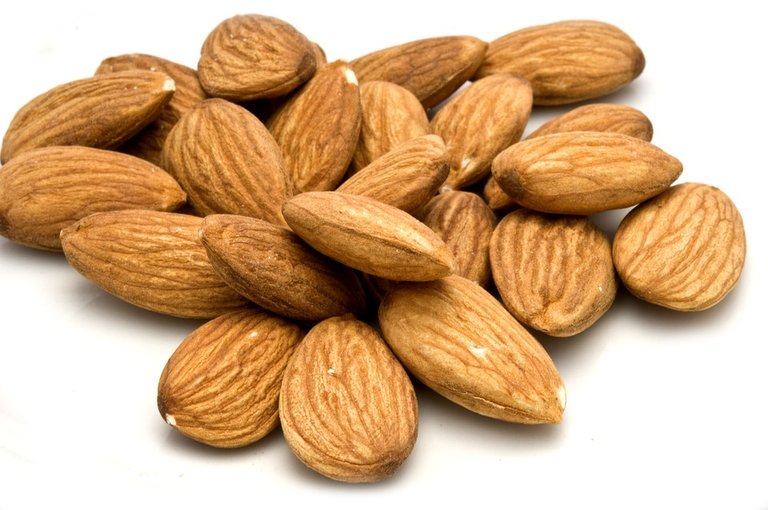
source
In this day and age, it's easy to have trouble keeping mental focus. Everybody is now bombarded with a constant stream of notifications, emails, texts, massive amounts of data at their fingertips that is easy to get lost in, social media apps that you practically need to stay glued to all the time to keep up with the latest updates, etc.
In this world of never ending distractions, it's harder and harder for people to think deeply and concentrate or focus for long periods of time. This is a big problem for anyone that has big goals or ambitions in life. It means that ultimately, if you want to achieve great, big things in your life, you're going to have to develop strategies and tactics that help you maintain your focus so that you can put in the work necessary to accomplish all of your dreams.
Luckily, there are ways of improving your focus and banishing mental chaos and procrastination, even with the constant temptation of technology all around you. Everybody is different though and I'm sure there are a lot of different techniques out there. Over the years, I've developed my own system that works very well for me. I believe that this would also work well for others struggling to improve their focus. This is what I want to share with you now.

Get Clear on What You Want to Accomplish and Write It Down
This is such a simple, yet powerful thing to do and it's amazing how well it works. Usually what I do near the end of the day on Sunday, is take sheets of blank paper, rip then in two and make seven half sheets of paper, each one having the name of a day of the week on then.
After that, I write down the key things I want to accomplish that day. When I do this, it's very important that what I write down is not such a huge, overwhelming task that when it comes to that day, I just want to avoid it. It's very important that I write out bite sized, management tasks that I feel I can accomplish that day. Doing this helps to create a guidepost or map of sorts so that when that day comes around, I can have this sheet of paper near me to refer to as the day goes on and make sure that I bring my attention and focus to those items I wrote down.
This is great for making sure I'm focused on the right things each day. Even though emails and other items come up during the day that I still need to focus on too, it's really great to go into a day with a plan of what you want to get done. Very often you'll find that you do in fact get done what you hoped for.
With that being said, it's very common that I don't actually complete everything that I set out to complete in a day. That's okay though, because when that happens, I just move those unfinished action items to the next day or spread them out over the next couple days, depending on deadlines. Sometimes I have to reconfigure the other items on the list for the following days too just to ensure that I'm not overloading any of my days. A good rule of thumb if you want to try this is to have about 10 or so action items per day that you want to focus on.
One of the satisfying things with this system, is once you accomplish something on your list, you can it check it off, then totally scratch it out completely on the sheet. This produces a nice feeling of accomplishment and can help you look at your day in terms of progress made. It's always nice when you can look at the sheet and see that it's almost completely all scribbled over with most of the items crossed out. That can make you feel like you were really focused that day and therefore productive.
How to Keep Your Motivation to Stay Focused
Whether we realize it of not, our emotions play a crucial role in everything that we do because they serve as the motivation behind our actions. In order to maintain your focus, you also need to stay motivated to maintain your focus. Sometimes it's easier at the very beginning of a task to stay motivated and thus focused on it. After we've been at it for a while though, and especially when we begin to run into roadblocks, it can sometimes test our motivation to stay engaged and that's when procrastination and mental chaos can start to take over.

One way to help ensure you keep your motivation to stay focused is to focus on the 'why'. Why are you doing what you are choosing to do? What do you ultimately hope to achieve? How will you feel when you achieve that? What does it mean to you to successfully achieve whatever it is that you are trying to focus on?
This is often where having a passion for something is very helpful. When you are passionate about something, the strength of that passion will help catapult you past any barriers that get in your way and threaten to knock you down. You won't, however, likely be able to be exceedingly passionate about absolutely everything you choose to do and need to focus on.
The fear of failure, or the fear of missing an important deadline is a great motivator to get into action and get things done. Sometimes when I'm working on Step 1, I'll ask myself 'What is the thing I'm most afraid of falling through the cracks right now if I don't start working on it?' Whatever comes to mind first is something that I'm going to put higher on the list of things for me to accomplish that week.
This technique helps you stay ahead of important priorities and helps you leverage your mind's natural procrastination killer because when you get scared enough that something important is going to fall through the cracks, you suddenly develop enough energy and motivation to work on it. The idea with this method though is that you can get to it earlier before you're in all out panic mode.
Develop a Cycle of Work/Relaxation in Smaller, Set Time Intervals When You Need Super Focus
Most of the time simply following the above system will help you stay focused on the important priorities regardless of what other distractions come up. But as we know, focus isn't only about knowing the right things to pay attention to and to work on, it's also about working on a given task long enough to accomplish it without getting derailed by distractions. For those times, there's a very effective technique that can help you make big progress on tasks using a set time interval cycle of work/relaxation that will help you accomplish what you want without burning you out.
My friend told me about this in college and I've found it to work very well. The way he described it was that the brain has a hard time maintaining sustained focus and concentration on any task for longer than 15 minutes. After the 15 minute period, your brain tends to get tired and it can't work on the task as effectively anymore. He told me about working hard with super focus and concentration on a task for 15 minutes, then taking a break for 15 minutes and letting the brain relax. After that, you go back to repeat the whole process again and keep doing that until you've accomplished your task.
At first I thought that this wasn't really feasible because that sounded like a lot of breaks and didn't sound very efficient. When I thought about it further though, I realized that a break can be viewed as simply a change in activity. Sometimes it can be an actual break where you go for a 15 minute walk or something like that, but sometimes it can be starting up a new work task, checking email, etc. Working on something completely different from the first task you were super focused on will still give your brain a break from that task, especially if you switch you activity to checking emails or something else totally unrelated to what you were doing before.
This technique works very well and will make it a lot easier for you to maintain your focus without distractions. Whether you decide to take an actual break after 15 minutes, or simply switch your task to something else that's unrelated, you'll find that it will produce benefits for you. Since 15 minutes is not a large time commitment, it will not feel that difficult to banish all tech and other distractions for the 15 minute intervals when needed.
Pay Attention to Your Diet and Exercise
If you simply follow the above advice, you'll be well on your way to great focus and concentration. There are, of course, other things you can do to help give yourself an edge. One of them is integrating foods that are good for your brain into your diet. I'm not going to get too in-depth with this here since there's plenty of internet research out there for those that want to look into this further. I do know that there are certain power foods that are good for your brain (and have various other health benefits) and my recommendation would be to integrate at least one of these into your diet regularly if you're not already doing so.
Here are some key brain power foods that I like to have on a regular basis:
Avacados: I love the taste of avacados but they're also a good source of monosaturated fats that protect brain cells. They also help increase memory and concentration.

Salmon: Salmon is delicious and also a real powerhouse for health. It's packed with brain healthy omega-3 fatty acids and has a host of other benefits.

Almonds: Almonds make for a quick and easy snack and are also super healthy. They also contain omega-3 fatty acids and vitamin E which are both very good for the brain.

Extra Virgin Olive Oil: I add this in as much as I can when I'm making salads and even into smoothies! Extra virgin olive oil contains power antioxidants that help protect the brain and help with memory and learning.

Turmeric: I like to cook with a lot of spices and make sure to use turmeric as often as I can. Turmeric is very powerful, has many benefits and has been used for throughout history for its healing properties. One of its benefits is it improves your brain's oxygen intake. This in turn helps you stay more alert and process information better.

Exercise, particularly aerobic exercise, also plays an important role in helping to keep your brain healthy so that you can stay sharp and focused. When you do aerobic exercise, your body produces a hormone called BDNF that works to protect your brain cells. I personally like going for a 15-20 run every second day. I find that it helps keep my energy levels up so that I can maintain good focus and productivity, even later on in the day and evening.
All of these little things combined can make a big difference on your ability to focus and be as productive as you want to be.
If you liked this post, please consider following me @jen8
Sources:
thanks for this amazing information!
I'm so glad you liked it! Thanks for your comment :)
What about meditation? I find that helps me reset the baseline on what concentration is.
Yes, I've heard meditation can work wonders for some people. I've tried meditation many times but have a VERY hard time settling my chatty mind. I personally don't rely on it for that reason but I've heard from many people that it can work very, very well.
I've heard it said that if everyone could sit silently and still there would be world peace. I don't know if that's the case but without a doubt meditation is hard! And sometimes even excruciating, becoming painfully aware of all the activity of the mind and the body and feeling like calming that is insurmountable.
Thanks for the great post!
If you're able to overcome all of that and actually sit in a meditative state for any length of time, serious kudos to you! I've veered in and out of what I would call a meditative state from time to time before but yeah....very, very hard to achieve.
I have an Indian friend who grew up with yoga and he has said to me before: 1st step, achieve calmness/control in the body by entering a still, sitting posture (asana), 2nd step calmness/control in breathing (pranayama), 3rd step calmness/control in mind (meditation). He also says that even for people who have grown up with it, it's hard and never easy.
Hey, you seem to have good understanding about that. You may want to make a post about it :) Either way, I'll follow-you as you seem like you'd have some good info that I would be interested in.
I'm new to Steemit, but I am a writer so I'm starting to see the possibilities.
Thanks for the encouragement!
Aw, thank you :)